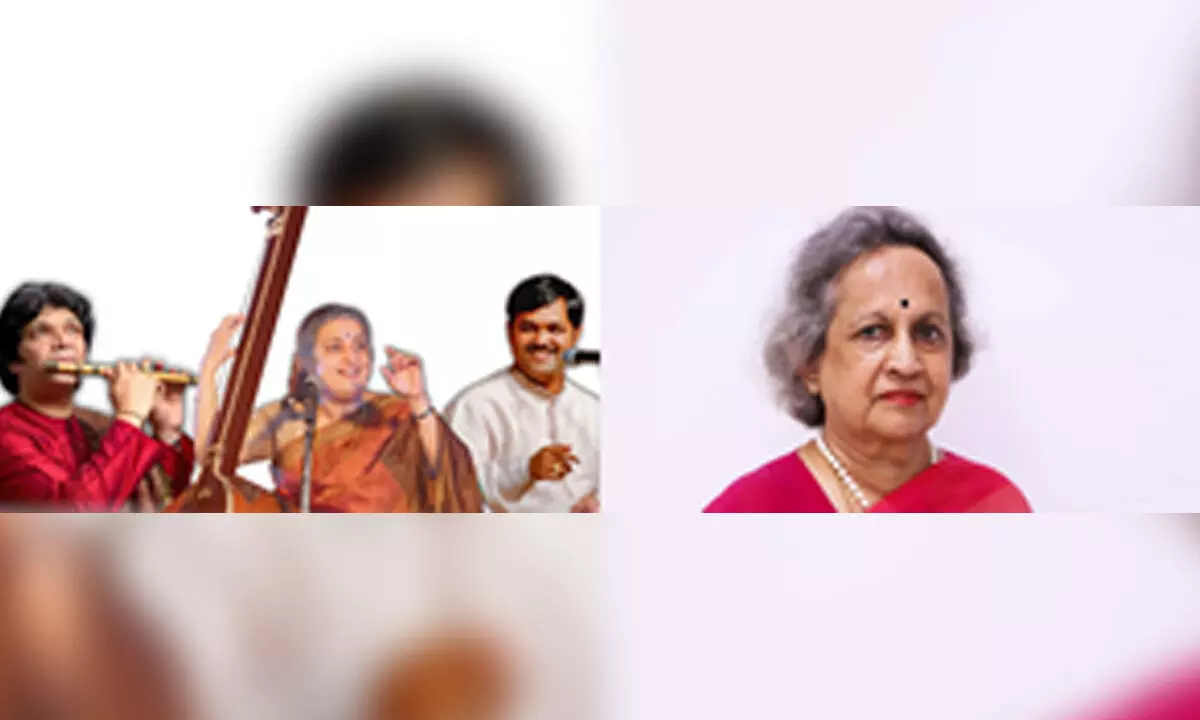Top artistes to regale at 32nd Mumbai Sanskriti Festival on ‘Universal Peace’

Mumbai: Top music stalwarts will enthral audiences at the Mumbai Sanskriti Festival with the theme of ‘Universal Peace’ organised by the Indian Heritage Society (IHS) at the iconic Asiatic Society of Mumbai’s Town Hall on January 13-14, officials said here on Friday.
The stellar line-up comprises Pt. Rakesh Chaurasia, Vidushi Ashwini Bhide-Deshpande, Pt. Sanjeev Abhyankar and their teams of musicians at the 2-day musical treat.
The festival will open on January 13 with flautist Chaurasia’s ‘Confluence – Music for Peace & Harmony’ with Indian Classical Music, and then weaving in elements of fusion and folk, to the accompaniment of Sridar Parthasarathy (Mridangam), Ojas Adhiya (Tabla), Shikhar Naad Qureshi (Percussion), Sanjoy Das (Guitar) and Ritik Chaurasia (Flute).
“This festival platform provides an ideal stage to spotlight Indian Classical Music, an integral part of our cultural heritage. I commend IHS for this impactful initiative, poised to resonate with a diverse audience and extend the cultural richness of our heritage to as many as possible,” said Pt. Rakesh Chaurasia.
On January 14 (Sunday), will see ‘Bhakti Sangam’ performances by Vidushi Ashwini Bhide-Deshpande, an acclaimed exponent of Hindustani Classical Music belonging to the Jaipur-Atrauli Gharana), and Pt. Sanjeev Abhyankar, Hindustani Classical Music singer of the Mewati Gharana.
This 'Bhakti Sangam' promises to be a true confluence of the devotion embedded in both the artists' unique styles, gharanas, and of various musical genres like khayal, bhajans, stotras and stutis.
They will be accompanied by Ajinkya Joshi (Tabla), Abhinay Ravande (Harmonium), Amar Oak (Flute), Omkar Dalvi (Pakhawaj), Uddhav Kumbhar (Side Rhythm), and Avanti Patel as the compere.
'Mumbai Sanskriti Festival' traces its roots way back to 1992 when it was launched as the ‘Banganga Festival’, after a 1991 sign-a-petition by IHS Chairperson Anita Garware, to save the now historic precinct - the Banganga Tank.
“While all Mumbai citizens were aware of the Banganga Tank, very few were acquainted with its location, history, and importance, and we felt live music was the best way to raise awareness,” said Anita Garware.
What began as the IHS Banganga Festival has evolved into the widely recognised Mumbai Sanskriti Festival, weaving together architectural and cultural heritage.
“IHS plays a pivotal role in rejuvenating heritage landmark structures in the city. Committed to fostering a continual understanding of Mumbai's history and culture through the medium of music, IHS strives to raise awareness about our rich heritage—what we have inherited—and actively works towards its conservation, restoration, and transmission to future generations,” said Garware.
Supported by Maharashtra Tourism, sponsored by Tata Consultancy Services and HSBC, 'Mumbai Sanskriti' is curated by Northern Lights and entry is free for the audiences.
According to legend, when Lord Rama in exile had halted in the region to search for his kidnapped wife Sita and was feeling thirsty, he asked his brother to fetch some water, and Lakshman shot an arrow into the ground, and a tributary of River Ganga - over 1,600 kms away - sprang out. Hence the name, ‘baan’ (arrow) and ‘Ganga’ (River).


